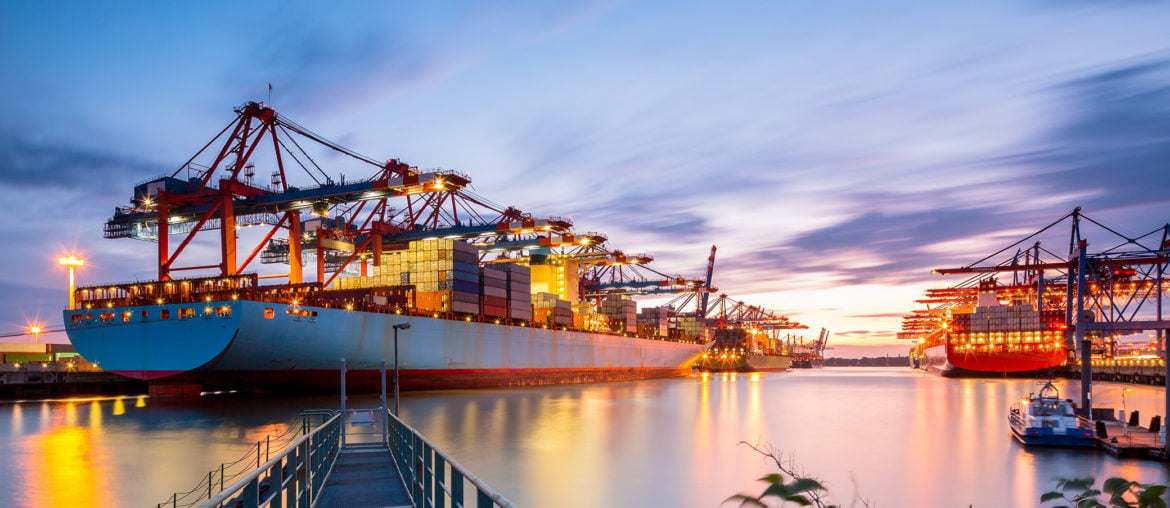Wednesday, November 3, 202110:00 am – 11:00 am ET The future of the healthcare and life sciences supply chain is digital. New technologies are redefining the delivery of healthcare, improving clinical data flows, tracking medical supply inventory and enhancing overall patient care. In this one-hour webinar, our panel of experts will look at the business issues, practical applications and legal considerations when digitizing the supply chain, covering topics such as: The blockchain potentialArtificial intelligence and…
On September 24, 2021, the Commerce Department’s Bureau of Industry (“BIS”) published a “Notice of Request for Public Comments on Risks in the Semiconductor Supply Chain” (“Notice”). The Notice seeks responses from various parties in the semiconductor supply chain about current shortages and related issues. Comments in response to the Notice are due by November 8, 2021. The Notice was issued in response to a 100-Day Supply Chain Review (“Review”) of semiconductors and advanced packaging…
On August 19, 2021, the Federal Communications Commission (“FCC”) published a notice of proposed rulemaking (the “NPRM”) discussing potential changes it is considering making to its equipment authorization and competitive bidding programs to restrict the use of telecommunications and video surveillance equipment and services produced or provided by five Chinese companies. Those changes could further narrow the availability and use of such equipment in the United States, and restrict companies that accept financing from two…
On September 28, 2021, the US Department of Defense (“DoD”) published a notice of request for public comments. DOD’s request relates to Executive Order 14017, (“America’s Supply Chains” or “Supply Chain EO”). See some of our key blog posts on the Supply Chain EO for more background. As part of requiring agency reviews of key industrial bases’ supply chains, the Supply Chain EO mandated that DoD conduct a one-year review of supply chains within the defense industrial base…
Tuesday, October 5, 2021 2:00 – 3:00 PM CET Corporates seeking to effect innovation across their supply networks need to underpin that change with a strategy that pre-empts legal challenges from existing or prospective distributors and suppliers. Trends in corporate governance such as ESG compliance, digital transformation of supply chain and an evolution of workforce demographics and expectations following the pandemic are all driving major changes in business operating models and delivery. Many are looking to…
On January 19, 2021, the US Commerce Department (“Commerce”) published an interim final rule (“Interim Rule”) to implement Executive Order 13873, “Securing the Information and Communications Technology and Services (“ICTS”) Supply Chain.” The Interim Rule was issued following the public comment period’s closure on January 10, 2021 on the proposed rules issued on November 27, 2019 (“Proposed Rules”). For more information on the Proposed Rules and the Interim Rule, please see our blog posts here and here. When it requested comments on…
On 12 July the European Commission and the European External Actions Service (EEAS) published guidance on “due diligence for EU businesses to address the risk of forced labour in their operations and supply chains”. The non-binding guidance seeks to provide European companies with practical advice on the implementation of effective human rights due diligence practices to address forced labour risks in their supply chains. It also provides an overview of international standards and principles on responsible business…
In the recent flurry of US Government activity related to Xinjiang, one thing is clear: trade compliance risks continue to increase for companies with supply chains that involve Xinjiang. These latest actions add to the expanding list of companies that face import bans, export bans, and sometimes both, in addition to broader measures under consideration in Congress. This blog post summarizes the past month’s developments. Companies with Xinjiang anywhere in their supply chains should be…
As part of Europe’s economic recovery, the EU Commission has acknowledged the trading bloc’s technological and strategic dependencies will need to be addressed. The EU Commission identified a number products imported into the EU on which the EU is highly dependent in notably sensitive sectors. The EU Commission also performed six in-depth reviews on the origin of strategic dependencies and their impact on importation. The EU Commission concluded that it will continue to work on…
On April 20, 2021, the Biden Administration took steps to address cybersecurity risks in the US energy sector industrial base by announcing a 100-day cybersecurity initiative for electricity subsector industrial control systems (“100-Day Plan”) and by issuing, on April 22, 2021, a Request for Information to inform future recommendations for US energy systems’ supply chain security (“RFI”). Public comments in response to the RFI are due by June 7, 2021. These actions support the Biden…








